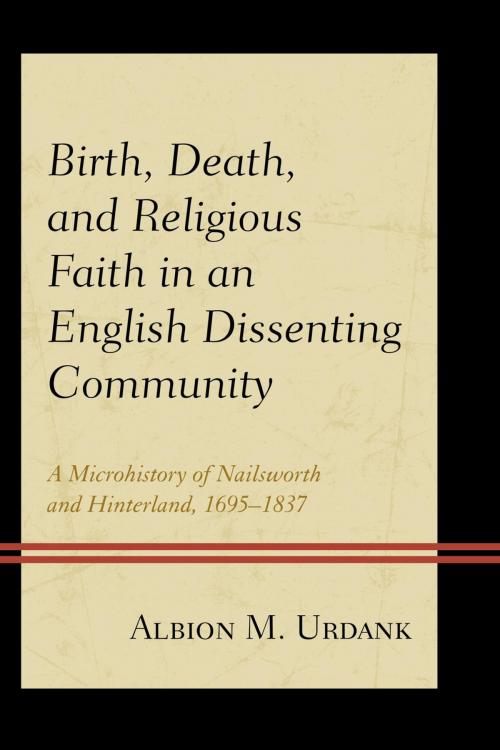Birth, Death, and Religious Faith in an English Dissenting Community
A Microhistory of Nailsworth and Hinterland, 1695–1837
Nonfiction, Social & Cultural Studies, Social Science, Demography, Anthropology, History, British| Author: | Albion M. Urdank | ISBN: | 9781498523530 |
| Publisher: | Lexington Books | Publication: | December 17, 2015 |
| Imprint: | Lexington Books | Language: | English |
| Author: | Albion M. Urdank |
| ISBN: | 9781498523530 |
| Publisher: | Lexington Books |
| Publication: | December 17, 2015 |
| Imprint: | Lexington Books |
| Language: | English |
This study lies at the intersection of three principal areas of social history: demography, religion, and quantitative methods. It is a microanalysis of an English population at the level of the Anglican parish, during the era of the evangelical revival, which includes, unusually, Protestant dissenters from the Established church, in this case Particular Baptists, who were moderate Calvinists. It goes a step beyond previous studies by giving Anglicans and Dissenters co-equal status in a comparative demographic analysis and by demonstrating how religious values informed procreative activity. It does so through a combination of advanced statistical methodologies and an innovative treatment of data collection forms as readable texts. The study concludes that the likelihood of another birth increased following a religious conversion experience, especially among both Anglican and Baptist wives following marriage. Mortality too had a less constraining effect on procreative activity which, in conformity with the English experience, was driven largely by fertility.
This study lies at the intersection of three principal areas of social history: demography, religion, and quantitative methods. It is a microanalysis of an English population at the level of the Anglican parish, during the era of the evangelical revival, which includes, unusually, Protestant dissenters from the Established church, in this case Particular Baptists, who were moderate Calvinists. It goes a step beyond previous studies by giving Anglicans and Dissenters co-equal status in a comparative demographic analysis and by demonstrating how religious values informed procreative activity. It does so through a combination of advanced statistical methodologies and an innovative treatment of data collection forms as readable texts. The study concludes that the likelihood of another birth increased following a religious conversion experience, especially among both Anglican and Baptist wives following marriage. Mortality too had a less constraining effect on procreative activity which, in conformity with the English experience, was driven largely by fertility.















